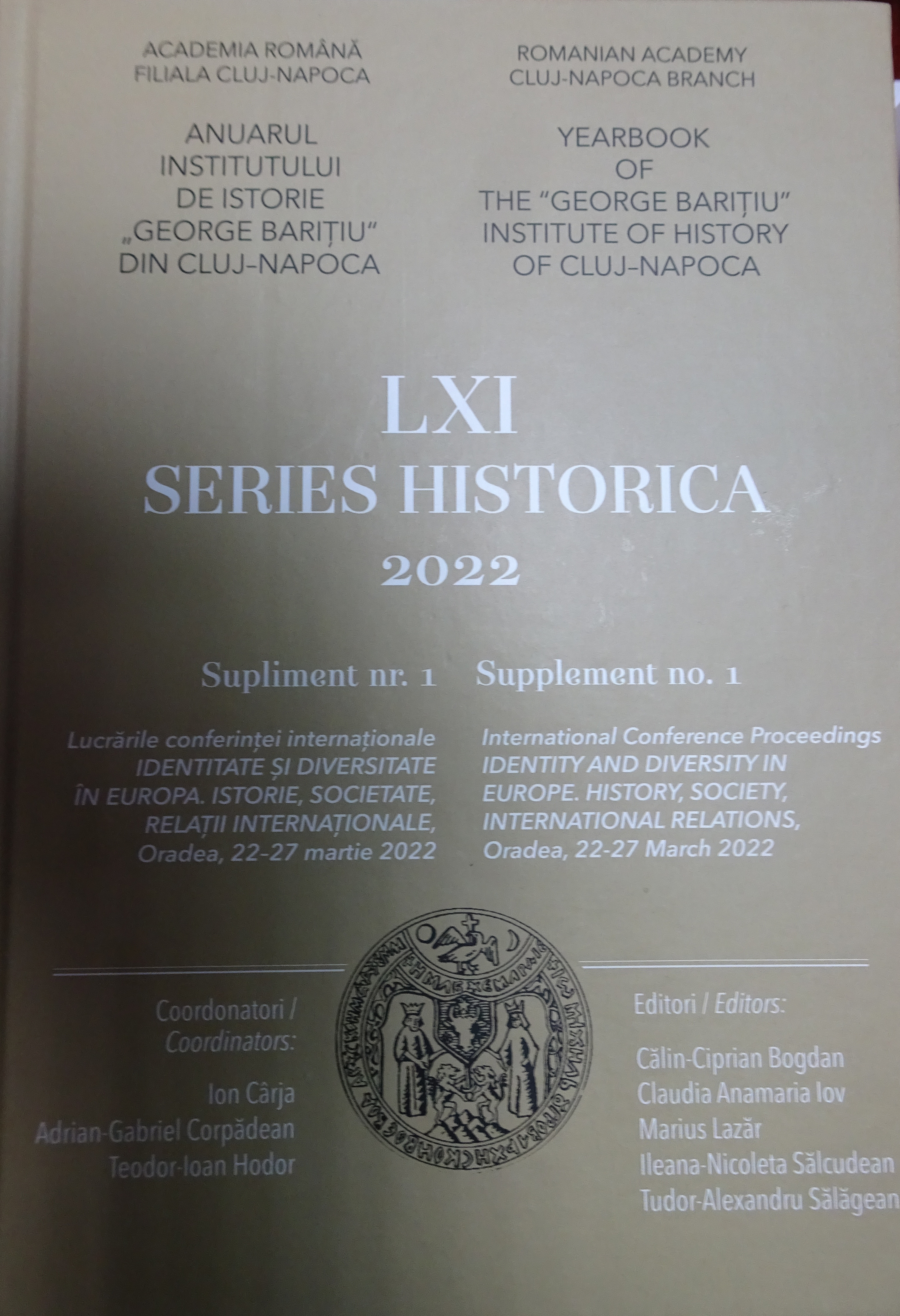Competitive Loyalties. Romanians between Vienna and Bucharest in the Second Half of the 19th Century and the Beginning of the 20th Century
Competitive Loyalties. Romanians between Vienna and Bucharest in the Second Half of the 19th Century and the Beginning of the 20th Century
Author(s): Tudor NeamțuSubject(s): Cultural history, History of ideas, Local History / Microhistory, Modern Age, 19th Century, Pre-WW I & WW I (1900 -1919)
Published by: Editura Academiei Române
Keywords: dynastic loyalty; national identity; collective mentalities; monarchy; Kingdom of Romania; House of Habsburg;
Summary/Abstract: The subject of this paper focuses on the idea of loyalty within the Romanian territories. This matter had deeply troubled the minds of Romanians from Transylvania and the Old Kingdom at the turn between the 19th and 20th centuries. But why did the Romanians’ loyalty feelings become competitive? Because the historical circumstances made the emotional springs that formed the basis of this sentiment to determine attitudes in opposition with the beliefs acquired or cultivated for a long time. Looking back, it is not so surprising that in the 19th century – a time of great transformation and establishment of nation states – the Romanians from the two territories were finding themselves in an ideological dilemma. Undoubtedly, the aspirations, passions, and expectations emanating from the prospect of fulfilling national ideals involved an emotional, often dramatic, upheaval. Our study proposes a parallel approach of the two types of loyalty (national and dynastic) in the two territories inhabited by Romanians, analyzing their attachment to the House of Habsburg, respectively the Romanian monarchy, in the historical context of awakening national consciousness. The conflicting evolution of the dynastic and national sense of loyalty had a sinuous course. We note that the dynastic loyalty lost ground when it competed with national sentiments. Detrimental to the fidelity for each monarch, the ideals of unity and emancipation of Romanian people prevailed in the spectrum of affectivity. The paper highlights the intriguing and exciting aspects regarding the complex process of shifting mentalities, the ideological impact on individual or collective beliefs, the effects of propaganda and censorship in mobilizing the masses, on the one hand, and nonetheless the constructive tradition of cultivating values, virtues, opinions through education, on the other.
Journal: Anuarul Institutului de Istorie »George Bariţiu« - Series HISTORICA - Supliment
- Issue Year: 1/2022
- Issue No: LXI
- Page Range: 217-231
- Page Count: 15
- Language: English

